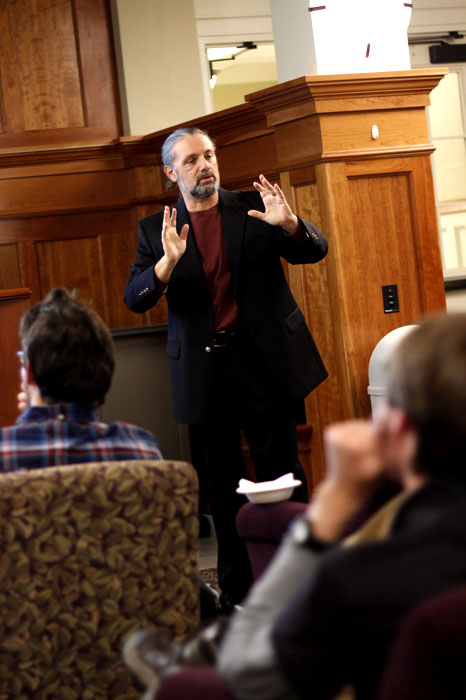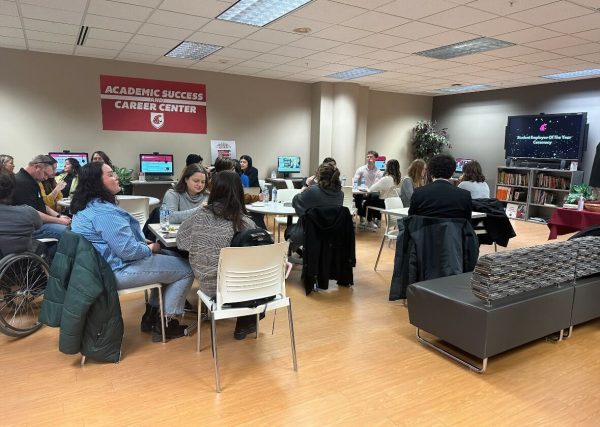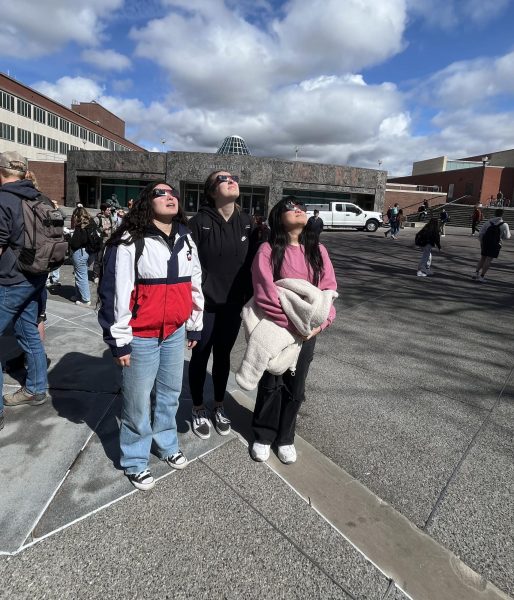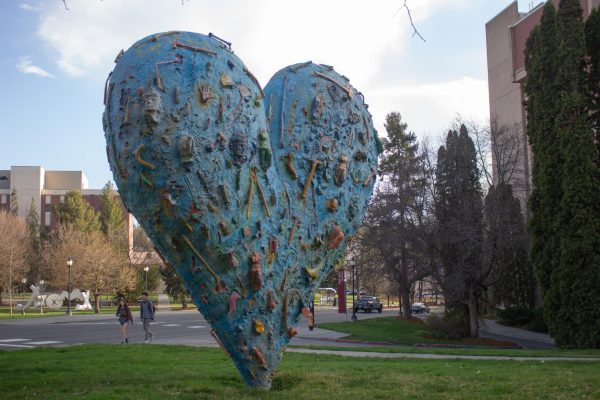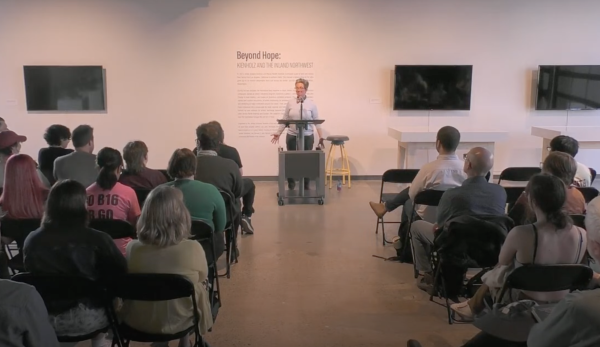Lecturer promotes public works
Craig Parks speaks as part of the Honors Distinguished Lecture series in the Honors Lounge, Monday, Sept. 23, 2013.
September 24, 2013
The United States is considered the most individualistic country on Earth and public projects are suffering as a result, said psychology professor Craig Parks.
Parks was the inaugural speaker in the first of the Honors College Distinguished Lecture Series hosted by the college and the Honors Student Advisory Council last night.
The opening lecture focused on theories that might explain why some public projects, such as repairing structurally deficient state bridges, fail while others like skate parks thrive.
“We’re trying to understand what we can do to make people more consistently supportive of things that are beneficial to a wide range of people,” Parks said.
Seeing state governments struggle to gain public support and funds for projects that would benefit a majority of the population is frustrating, he said.
“It’s hard to get people to be consistently cooperative, but it’s not far from impossible,” Parks said.
The long term goal for Parks’ research is to encourage people to regularly support public operations.
Parks said the theories on cooperation have large implications for societal policies. Overcoming political partisanship is a major implication.
Instead of cooperating for the common good, political parties are sabotaging one another, he said.
Amanda Feeney, Honors College alumna, said the connections between current political events like the conflict in Syria and the theories Parks presented were especially relevant.
“It’s really interesting how we can tie most of the political debates to what he talked about,” she said.
Another implication in the theories Parks presented is the effort to reduce greenhouse gases.
“We have to do this, but people won’t do it because of the inconvenience,” he said.
Parks’ research, as it relates to clean energy, is one of the reasons Dean of the Honors College Grant Norton felt he should start the series.
“His research affects things of interest in the Northwest,” Norton said.
The research in clean energy and Parks’ cooperation research parallel WSU’s focus on the environment, he said.
Norton said the opportunity for intersections between various fields of study prompted the creation of the lecture series.
“We’re creating an interdisciplinary opportunity for students to see more broadly what’s happening on campus,” he said.
Providing Honors College students with an opportunity to interact with professors outside of their field of study is an important part of this series, Norton said.
Kaylee Ray, honors senior accounting and journalism major, said having the chance to attend a lecture outside of her discipline without the pressure of taking notes was a nice break from her regular routine.
“It’s fun to go to lectures where you can just listen and learn,” she said.
The second lecture in the Distinguished Lecture Series will feature chemistry professor Cliff Berkman and is set for Oct. 21.


